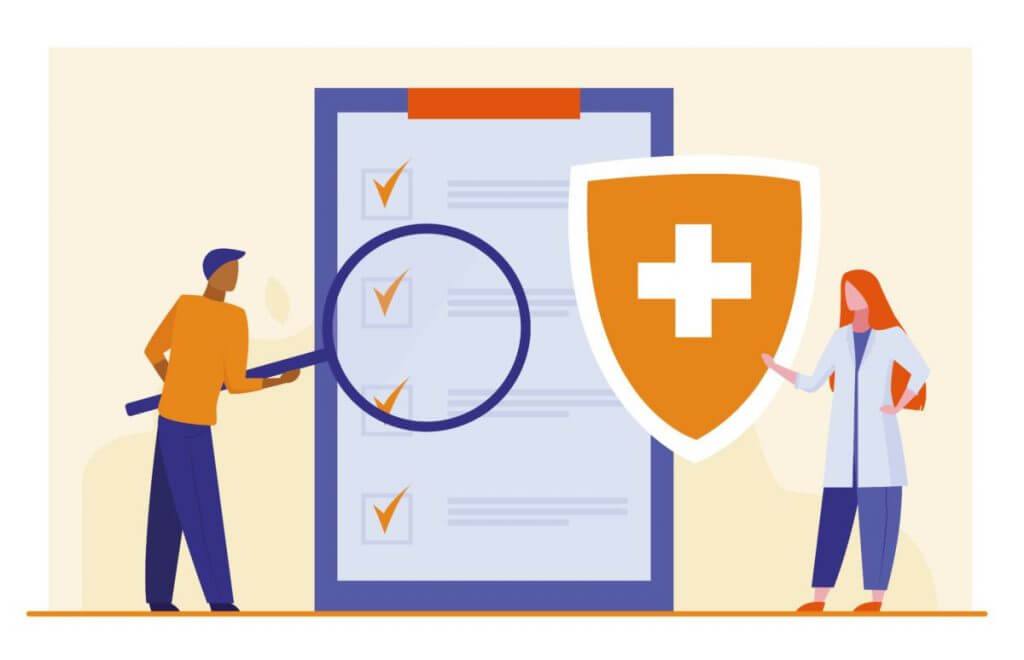The Most Common Types of Background Checks


Nobody wants to look bad on their resume. You may come across a candidate who looks perfect on paper. Resumes, however, only talk about the good side of the story. So what can you do to find out a candidate’s entire story?
“Background checks” is one answer to this.
You’ve poured in years of hard work and countless resources to make your business flourish today. But unfortunately, all it takes is one bad apple to make everything come crashing down. If you fail to go beyond the resume, you risk hiring an individual who is either unqualified for the role and/or may pose a threat to others at work. Should an issue arise about a candidate in the future, the company might end up facing the music. This would mean heavy financial losses or even negligent hiring litigation.
Fortunately, however, such a disaster is completely avoidable if you run the right background checks at the right time.
Who Should Get a Background Check?
Companies from several industries across the globe infuse their hiring process with background checks. The goal of these checks is to ensure businesses hire the best talent with a clean record. From volunteers to executives, every player in the corporate playground is expected to get background checks. Here are the background checks tailored for specific individuals.
Pre-Employment Background Screening
Employers run pre-employment background screening on candidates to not only find the best talent but also ensure they create a safe workplace. The most common types of employment background screening include: Address History, Civil Records, SSN Verification, Criminal Records, Resume Verification, Medical Registration and Sanctions, and Drug and Alcohol Testing.
Volunteer Background Screening
Corporations, hospitals, ministries, churches, youth sports, and other organizations that hire volunteers run volunteer background screening. Based on the industry, organizations conduct tests like educational and employment verifications, drug and alcohol testing, professional license verification, and motor vehicle records to ensure they’re including the right person in their team.
Tenant Background Screening
Tenet background tests include testing the tenant’s employment verifications, credit reports, rental history, and county criminal history. These tests are vital to avert any financial disasters or other potential liabilities that the tenets may pose.
Executive Background Screening
When it comes to executive screenings, the approach can be more comprehensive than other forms of background checks. During executive searches, businesses deploy several comprehensive background screenings. Some of these include US Federal Criminal and Civil Searches, Credit Reports, 7-Year Misdemeanor, and Felony, Verified National Criminal Search, Verifications, References, and County Civil Search.
What Types of Checks are Given
The types of background checks given to candidates include:
Identity Verification
Identity verification helps dig out whether a candidate is “exactly who” they claim to be. Companies run this test to avoid onboarding any candidate with a stolen identity. Identity verification includes checks including the name, social security number, address, and date of birth.
Criminal Background Check
Including criminal background checks in the hiring process is vital to keep your workforce safe and protected. These checks hunt down any convictions, misdemeanors, and arrests the candidate faced on the county, state, and federal levels. These checks also cover dismissed or acquitted charges.
Credit Check
Credit checks are especially important when a position involves handling finances or confidential information. Red flags spotted during credit checks indicate the candidate might be at a risk for coercion or bribery.
Motor Vehicle Report
MVR or Motor Vehicle Reports reveal a candidate’s driving history, license status, past suspensions, vehicular crimes, traffic citation, DUI convictions, and any unpaid summons and insurance lapses.
Professional License Check
In some cases, candidates put up several false licenses and certifications just to make their resumes “look good.” If left unchecked, this can lead to the onboarding of unqualified candidates. Regardless of the industry a candidate operates in, it’s vital to verify if they, in fact, received their professional license.
Education Screening
Education checks help discern whether the educational qualifications the candidate claims to have are true. The law requires certain positions to have specialized education or training. Through education checks, employers can validate a candidate’s qualifications should a need arise in the future to present these qualifications to authorities.
Fingerprint Test
The FBI collects and stores fingerprint data of the citizens in the Integrated Automated Fingerprint Identification System. This system has over 70 million criminal profiles. A fingerprint test reveals information like criminal arrest charges, dates, and case results and basic information like the name, address, employment, and date of birth.
E-verify
E-verify scans information associated with a candidate’s Form I-9 for Employment Eligibility Verification. This helps companies verify if a candidate is eligible to work in the United States. Only if the results match the records in the DHS or SSA system, the employee is authorized to work in America.
Sexual Offender Registry
A sexual offender test helps verify if a candidate has a history of sexual offenses. This test helps mitigate the possibility of any acts of violence or sexual offense from emerging in the workplace.
Drug Screening
Jobs in several industries like road transport, aviation, and more require periodic drug and alcohol testing. These tests help discern whether the employees are physically and mentally fit to perform their tasks. In addition, drug testing by companies reinforces the societal cause of fighting drug and alcohol abuse. Lastly, drug tests ensure a candidate will not be a potential threat to their coworkers and the company itself.
Reference Check
Reference checks are a vital part of the hiring process. They help determine the candidate’s professional competencies, attitude towards work, leadership abilities, ethics, teamwork, and more. Through reference checks, employers can verify any claims of professional contribution or past work accomplishments in previous firms.
Social Media and Internet Check
Social media and internet checks dive deep into a candidate’s social media handles to find out if they’ve projected any objectionable behavior online. Social media tests can also help detect any decencies between what the candidate has mentioned during the hiring process and what they’ve put out on their social media accounts.
Who should conduct the background checks
When it comes to performing flawless background checks, choosing the right people or an accredited background check company is critical. The following are best suited to do so:
● Hiring Manager
● Human Resources
● Outside third parties like Ethico
● Hybrid – HR and outside parties combined.
Background checks are the only way to determine the credibility of a candidate. They are also one of the steps companies can take to ensure a workplace is full of qualified professionals working within a safe environment. Background checks help companies avoid reputational damages or several million in losses should any issue pop up in the future.
A solid team of experienced professionals at Ethico is dedicated to helping organizations hire effectively based on the candidate’s expertise and credibility. To know “who” you are letting inside your company and to keep your workplace protected from any potential threats, reach out to Ethico today!





































